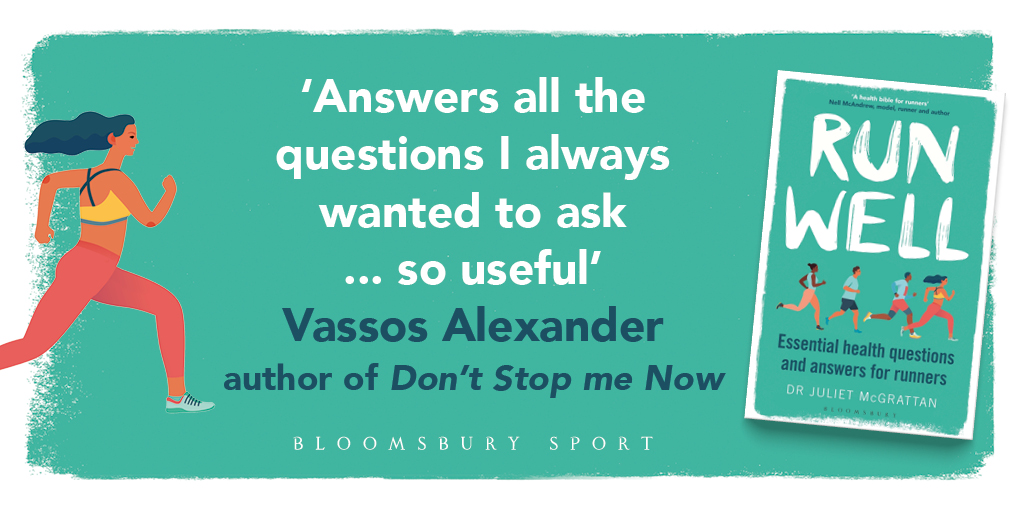Whichever season we’re in, there’s always someone with a cold and there’s always a runner wondering whether or not it’s ok to run with a cold. Will running with a cold make you worse? Is it harmful to run with a cold? Will a run actually help a cold to get better? Can you ‘sweat out’ a cold?
It’s so frustrating when you’re making great progress through your training plan and then, bang, a cold strikes. Instead of rubbing on your anti-chafe cream you’re rubbing vapour rub on your chest and wondering if you should buy shares in tissues. Colds are caused by viruses. There are hundreds of different viruses but rhinovirus is the most common one to cause a cold. Adults get an average of two to four colds a year, mostly between September and May according to the American Lung Association. If you have school children in your house, then you’re likely to get more. Colds usually clear up within one to two weeks but that can feel like an age if you’re a runner keen to run. So, is it ok to put on your trainers and head out with a pack of tissues in your running belt?
You’ve probably heard some kind of version of the saying, ‘In the chest, rest is best. Above the neck, what the heck!’ While I agree with the first part about not running if you have symptoms in your chest such as a productive cough, wheeze or shortness of breath, I think the second part is misleading. Just because a symptom is above the neck doesn’t mean it’s ok to run.
When it’s OK to run with a cold
If you just have a bit of a runny nose, are sniffling and sneezing and your throat is dry and tickly, then a gentle run is unlikely to do you any harm. You may find it actually makes you feel better in the short term. You might feel as if you’re ‘sweating out’ your cold but this isn’t actually true. Running opens up your nasal passages and can reduce nasal congestion. Plus, a dose of endorphins can just generally make you feel better. Of course it’s important to take it easy. Don’t head out for a fast interval session or a really long run. You’re a bit under the weather so be sensible, go slowly for a short distance and see how you feel.
When it’s not OK to run with a cold
Sometimes rest is definitely best. If you have any of the following symptoms (some of which are above the neck) then you’d be safer to miss your run:
- A high temperature
- Shivering or aching
- A chesty cough
- Wheezing
- Dizziness or light headedness
- Thick nasal discharge that’s making it difficult to breathe
- Blood stained nasal discharge
- Pain or pressure in your face or teeth
- You feel out of breath walking around
- Earache
- A painful throat when you swallow
- Glands up in your neck
- You’re just really tired
- A faster pulse rate than usual
- Other medical conditions such as asthma that can worsen when you have a respiratory infection
This is not a definitive list but these symptoms suggest that your body is working hard to clear an infection and adding the extra stress of exercise is not a good idea. Some of these symptoms also suggest you may not be dealing with just a simple cold. Sinusitis, ear infections and chest infections are common sequelae of a cold. For info on when to seek medical advice with a cold see here.
Use your common sense
It’s amazing how common sense can leave us when it comes to sticking to a training plan! It’s tempting to think that one or two missed runs are going to destroy all our efforts. This is not true and in reality, the best thing to do is often to rest, allow your body a few days to get better and pick things up when you’re ready. This is better than stubbornly pushing on. Just be honest with yourself about how you feel. Even if you can’t run, you can walk. Don’t underestimate the benefits of a few minutes stretching your legs in the fresh air. And, if it’s not a cold but your nose just runs whenever you run then read my recent blog, ‘Why does my nose run when I run?’ Remember too that people who do regular exercise generally have fewer illnesses and days off work than those who don’t. If you’ve enjoyed this blog and have other running health questions then you’ll love my book Run Well: Essential health questions and answers for runners, published by Bloomsbury and available everywhere you buy books.

Disclaimer: This is not medical advice. As always, with health content, reading something online doesn’t replace seeing your doctor who knows your medical history and can assess you in person. So, if you are unsure then always seek the opinion of a health care professional.
Featured image: Pablo_abdo via Pixabay








I found this article very useful and timely. I’m suffering with a cold, and with three and half weeks to go until Southampton Marathon I’ve been worried about having to miss the planned runs this week. One of which is the longest in my plan – 3hours 15 minutes!
Your article has eased my anxiety about this. Thank you
Hope you feel better and good luck with the marathon!